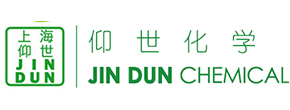96
Welan Gum: A Natural and Versatile Rheology Modifier
2023/5/18
Welan gum is a natural exopolysaccharide that has various applications in industrial sectors such as cement manufacturing, oil-well drilling, cosmetics, and food. It is produced by fermentation of sugar by bacteria of the genus Alcaligenes. The molecule consists of repeating tetrasaccharide units with single branches of L-mannose or L-rhamnose. Welan gum has unique rheological properties that make it an effective thickener, stabilizer, emulsifier, and gelling agent.
Welan gum is also biodegradable and environmentally friendly, as it is derived from renewable sources and does not contain any synthetic additives or preservatives. It is generally recognized as safe (GRAS) by the US Food and Drug Administration (FDA) and approved for food use by the European Union (EU).
In addition to these industrial applications, welan gum can also be used in cosmetic formulations, as it can provide moisturizing, smoothing, and anti-aging effects on the skin. It can also form transparent gels with excellent stability and texture. Moreover, welan gum can be used in food products, such as sauces, dressings, dairy products, bakery products, and beverages, as it can improve their viscosity, stability, mouthfeel, and appearance.
Conclusion
Welan gum is a natural exopolysaccharide that has remarkable rheological properties and versatile applications in various industrial sectors. It is produced by fermentation of sugar by bacteria of the genus Alcaligenes and has a tetrasaccharide backbone structure with single branches of L-mannose or L-rhamnose. Welan gum can be used as a rheology modifier in cement manufacturing, oil-well drilling, cosmetics, and food industries. It is also biodegradable and environmentally friendly. Welan gum is a valuable biopolymer that deserves more attention and research.
Properties and Benefits of Welan Gum
Welan gum is a water-soluble biopolymer that exhibits viscosity retention at elevated temperature, and is stable in a wide pH range, in the presence of calcium ion, and with high concentration of glycols . It also has high pseudoplasticity, which means it can reduce its viscosity under shear stress and recover its original viscosity when the stress is removed. This property allows welan gum to improve the flowability and pumpability of fluids without compromising their stability and consistency.Welan gum is also biodegradable and environmentally friendly, as it is derived from renewable sources and does not contain any synthetic additives or preservatives. It is generally recognized as safe (GRAS) by the US Food and Drug Administration (FDA) and approved for food use by the European Union (EU).
Applications of Welan Gum
Welan gum has been widely used in cement compositions, as it can enhance the workability, strength, durability, and crack resistance of concrete. It can also reduce the water requirement and improve the fluid loss control of cement slurries. Welan gum can also be used in oil-well drilling fluids, as it can provide high viscosity at low concentration, improve the suspension of solids, prevent fluid loss to the formation, and withstand high temperature and pressure.In addition to these industrial applications, welan gum can also be used in cosmetic formulations, as it can provide moisturizing, smoothing, and anti-aging effects on the skin. It can also form transparent gels with excellent stability and texture. Moreover, welan gum can be used in food products, such as sauces, dressings, dairy products, bakery products, and beverages, as it can improve their viscosity, stability, mouthfeel, and appearance.
Conclusion
Welan gum is a natural exopolysaccharide that has remarkable rheological properties and versatile applications in various industrial sectors. It is produced by fermentation of sugar by bacteria of the genus Alcaligenes and has a tetrasaccharide backbone structure with single branches of L-mannose or L-rhamnose. Welan gum can be used as a rheology modifier in cement manufacturing, oil-well drilling, cosmetics, and food industries. It is also biodegradable and environmentally friendly. Welan gum is a valuable biopolymer that deserves more attention and research.

